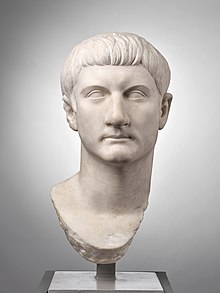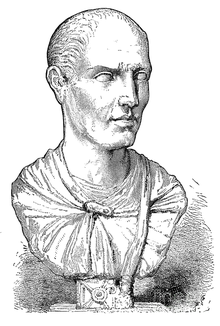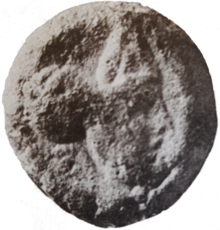
This article concerns the period 49 BC – 40 BC.
This article concerns the period 219 BC – 210 BC.

The gens Claudia, sometimes written Clodia, was one of the most prominent patrician houses at ancient Rome. The gens traced its origin to the earliest days of the Roman Republic. The first of the Claudii to obtain the consulship was Appius Claudius Sabinus Regillensis, in 495 BC, and from that time its members frequently held the highest offices of the state, both under the Republic and in imperial times.
The gens Fulvia, originally Foulvia, was one of the most illustrious plebeian families at ancient Rome. Members of this gens first came to prominence during the middle Republic; the first to attain the consulship was Lucius Fulvius Curvus in 322 BC. From that time, the Fulvii were active in the politics of the Roman state, and gained a reputation for excellent military leaders.

The gens Cornelia was one of the greatest patrician houses at ancient Rome. For more than seven hundred years, from the early decades of the Republic to the third century AD, the Cornelii produced more eminent statesmen and generals than any other gens. At least seventy-five consuls under the Republic were members of this family, beginning with Servius Cornelius Maluginensis in 485 BC. Together with the Aemilii, Claudii, Fabii, Manlii, and Valerii, the Cornelii were almost certainly numbered among the gentes maiores, the most important and powerful families of Rome, who for centuries dominated the Republican magistracies. All of the major branches of the Cornelian gens were patrician, but there were also plebeian Cornelii, at least some of whom were descended from freedmen.

The gens Sempronia was one of the most ancient and noble houses of ancient Rome. Although the oldest branch of this gens was patrician, with Aulus Sempronius Atratinus obtaining the consulship in 497 BC, the thirteenth year of the Republic, but from the time of the Samnite Wars onward, most if not all of the Sempronii appearing in history were plebeians. Although the Sempronii were illustrious under the Republic, few of them attained any importance or notice in imperial times.

The gens Minucia was an ancient Roman family, which flourished from the earliest days of the Republic until imperial times. The gens was apparently of patrician origin, but was better known by its plebeian branches. The first of the Minucii to hold the consulship was Marcus Minucius Augurinus, elected consul in 497 BC.

The gens Pomponia was a plebeian family at ancient Rome. Its members appear throughout the history of the Roman Republic, and into imperial times. The first of the gens to achieve prominence was Marcus Pomponius, tribune of the plebs in 449 BC; the first who obtained the consulship was Manius Pomponius Matho in 233 BC.
This page is based on this
Wikipedia article Text is available under the
CC BY-SA 4.0 license; additional terms may apply.
Images, videos and audio are available under their respective licenses.























